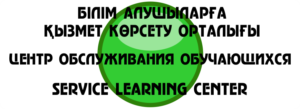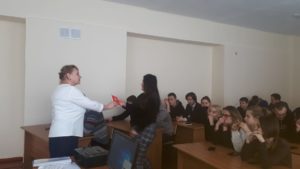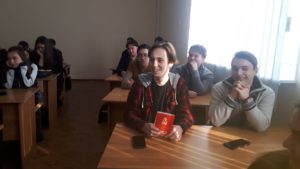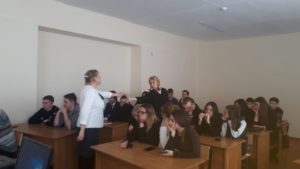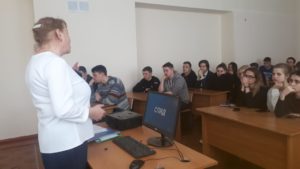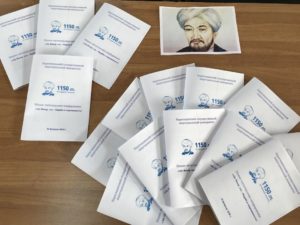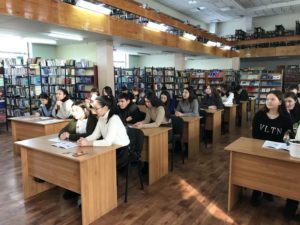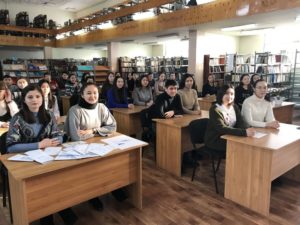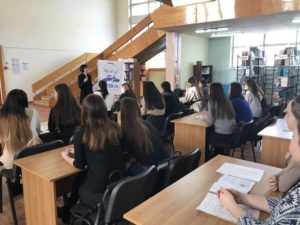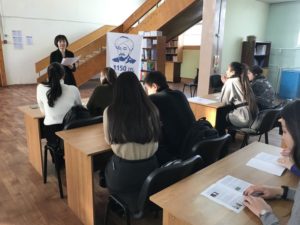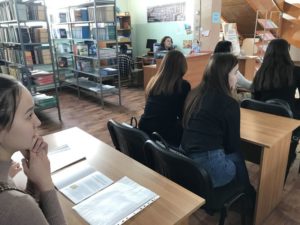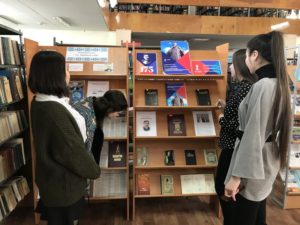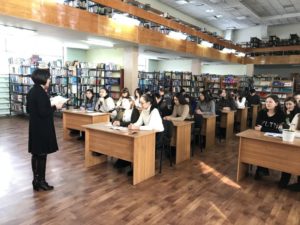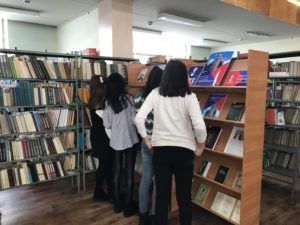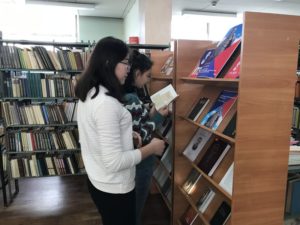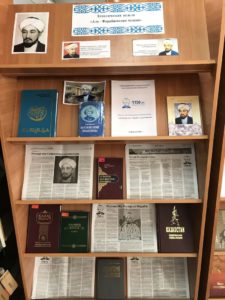On February 28, 2020, the faculty and staff of the Karaganda industrial university took part in an informational and explanatory meeting on the topic “Effective ways to implement anti-corruption policies in the activities of higher education organizations”. The speaker of the event was Aliya Maratovna Suleymenova-senior officer of the department of preventions and integrity of the Department of the Agency for combating corruption of the Republic of Kazakhstan in the Karaganda region.
The relevance of the topic is that anti-corruption measures in educational institutions are currently an acute problem in education in Kazakhstan. In modern conditions, corruption is gradually turning from a domestic problem to a global problem, so the Government of our country has developed a number of measures and recommendations to eliminate corruption offenses and bribery.
During the meeting, Aliya Maratovna reminded the participants of the event the anti-Corruption strategy of the Republic of Kazakhstan for 2015-2025, the Law “on combating corruption” and gave an example of anti-corruption monitoring conducted through the collection, processing, generalization, analysis and evaluation of legal statistics and other sources. Information used in anti-corruption monitoring was provided by the department for legal statistics and special accounts for the Karaganda region and the electronic information base of the Supreme Court of the Republic of Kazakhstan.
Aliya Maratovna Suleymenova announced the following data of anti-corruption monitoring, according to which, according to the generalization of legal statistics in the year 2019 , in contrast to the previous 2017,2018 years, the quasi – public sector is the most corrupt-36.3%, the figure is higher only in the police.
In a number of regions, this figure is significantly higher than the regional average: Aktogay district-55.6%, Bukhara Zhyrau and Nurinsk districts-53.6%, Osakarovsky district-53.3%, Zhanaarkinsky district-48.1%.
The most common reasons for corrupt relationships are: admission to universities, receiving an educational grant, and closing the session.
The initiators of corruption are: university employees-41.2%, intermediaries-helpers-39.2%, the share of citizens-31.1%. The agreement on informal resolution of the issue was reached at the level of teachers, administrative employees and specialists-46.7%, and management staff-31.1%.
Informal payments were made by financial calculation: from 2000 to 400000 tenge, the average size: 66619 tenge; in every fifth case, flowers or sweets served as remuneration to the employee of the institution (15.6%). Corruption prevalence in the region was 11.8%.
Summing up the meeting, Aliya Maratovna noted that in 2019, the National security Committee of Kazakhstan in Karaganda region received only 2 appeals about corruption offenses in higher education institutions of the region. Thus, the results of the anti-corruption monitoring allow us to formulate a number of conclusions and proposals aimed at improving the anti-corruption measures taken by anti-corruption entities. Our State seeks to establish and promote effective practices aimed at preventing corruption, and periodically evaluates relevant legal instruments and administrative measures to determine their adequacy in terms of preventing and combating corruption. In addition, it takes measures, in accordance with the fundamental principles of its domestic legislation, to resolve the issue of the consequences of corruption. Currently, a Road map is being developed with the state bodies reflected in the survey, with specific measures aimed at further eradicating corruption.
The meeting was held as part of the university’s integrity school work plan.
The press service of KIU
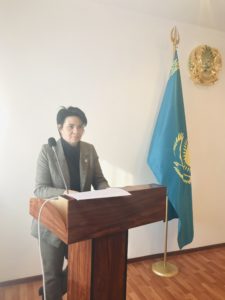
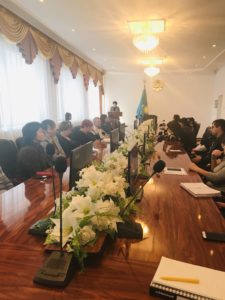
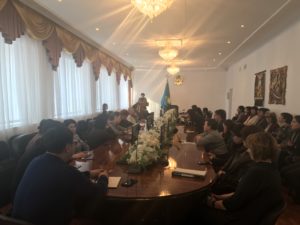

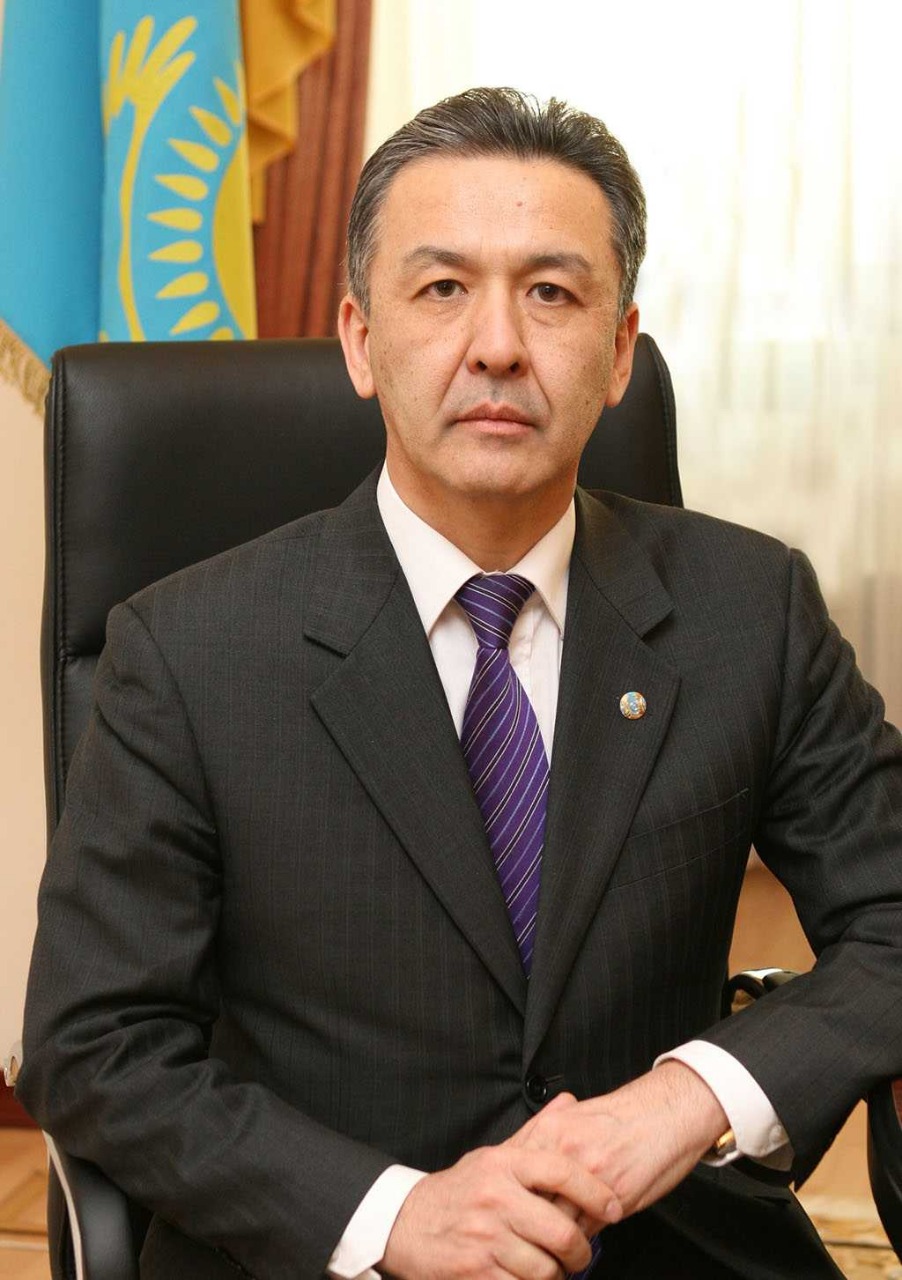 For the period of 50 years Karaganda Industrial University, founded in 1963, has become one of the leading higher ...
For the period of 50 years Karaganda Industrial University, founded in 1963, has become one of the leading higher ...












